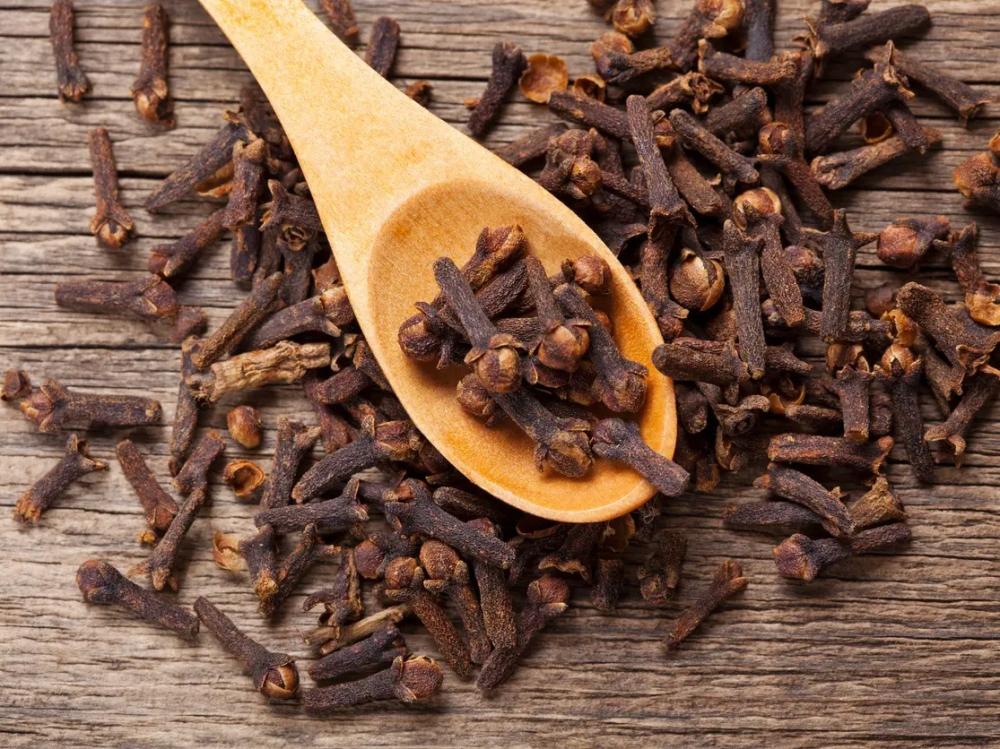1. Introduction
Cloves, also known as “nail” in some regions, are one of the most popular aromatic spices in the world. With their distinctive aroma and warm, sweet taste, they are a favorite ingredient in many dishes and drinks. Originally native to Southeast Asia, cloves have long spread throughout the world, becoming a symbol of both culinary excellence and traditional medicine.
Many people consider cloves to be more than just a spice; they carry historical stories of ancient trade journeys and the exchange of cultures across continents. Over time, people have continued to explore their uses for improving health and adding a unique flavor to food. In this article, we will learn about the many benefits of cloves, how to add them to our daily meals, and what to keep in mind when using them safely.
2. What is clove?
- Definition and source
- Cloves are dried flower buds picked from an evergreen tree belonging to the myrtle family.
- It is found in many tropical regions, especially in Indonesia, India, Sri Lanka and Madagascar.
- Shape and characteristics
- It takes small brown grains, resembling the shape of a “nail”, hence the name “nail” in some Arab countries.
- It has a pungent aroma and a sweet taste with a spicy note, which adds a distinctive warmth to dishes and drinks.
3. Nutritional value and active ingredients
- Eugenol
- Eugenol is the main compound responsible for cloves' strong smell and flavor. It is said to have anti-inflammatory and antibacterial properties, as well as potential pain relief when used in controlled amounts.
- Vitamins and minerals
- Cloves contain good amounts of vitamin K, and some minerals such as manganese, which helps promote bone health and support general body functions.
- Antioxidants
- Cloves contain antioxidant compounds that protect cells from damage caused by free radicals, and may contribute to supporting the body's immunity in general.
4. Potential Benefits
- Relieve tooth and gum pain
- Some people chew a clove or use diluted clove oil when they have tooth or gum pain. This is attributed to the effect of eugenol in soothing inflammation and relieving local pain.
- Antibacterial and antifungal
- Cloves are believed to have properties that may help prevent the growth of certain bacteria and fungi, making them a natural option for supporting oral and stomach health.
- Promote digestive health
- In folk medicine, cloves are commonly used to help soothe stomach upsets and reduce gas. Their strong flavor also stimulates the secretion of digestive enzymes.
- improve bad breath
- Due to its distinctive smell, cloves may help reduce unwanted breath odor, as some people chew them after meals to leave a fresh impression.
- Helps relieve some minor pain
- Whether chewed or inhaled in a hot drink, some believe it may help relieve minor headaches or feelings of stress.
Warning : These benefits still need more extensive studies to confirm them scientifically, and they are not a substitute for medical treatment.
5. Ways to use cloves
- In everyday cooking
- Add whole cloves to stews and sauces to give a warm, sweet flavour.
- It can be ground and added to homemade seasonings, such as curry and mixed spice blends.
- It is used in preparing oriental and western sweets, such as cakes and biscuits.
- In hot drinks
- It is an essential ingredient in some traditional teas, especially in winter, to provide a warming feeling.
- It can be added to coffee or hot milk with other spices such as cardamom and cinnamon.
- Use of oil
- Clove oil is used topically in certain cases, and it must be diluted with a carrier oil such as olive or coconut oil, especially if it is to be used on the skin or gums.
- Spray on fruits
- Some cultures sprinkle a mixture of ground cloves and fine sugar on tropical fruits such as pineapple, to enhance the flavour.
6. Precautions and Tips
- Moderation in consumption
- Excessive consumption or use of cloves may cause irritation to the mouth or stomach, especially in children or people with allergies.
- Drug interactions
- It is advisable to consult a doctor if you are taking blood-thinning medications or suffer from certain diseases, as eugenol may interact with some medications.
- Caution when using topical
- Concentrated clove oil may cause burns or irritation if used on the skin or gums without proper dilution. Always dilute and test for skin sensitivity first.
- Keep it in a suitable place.
- It is best to store it in a tightly closed container, in a cool, dry place, to preserve its flavour and aroma for as long as possible.
7. Conclusion
Cloves are a unique spice with a distinctive taste and aroma that adds a special touch to dishes and drinks. Despite its popularity in the world of folk medicine, more scientific studies are still needed to conclusively confirm its potential benefits. However, cloves can be an excellent addition to your daily diet when used in balanced and appropriate ways, whether in foods, drinks, or even in some simple home recipes.
If you are a fan of warm and sweet flavours, try introducing cloves into your kitchen and enjoy a new experience that combines a soothing sensation with a distinctive taste. With a few simple warnings, you will quickly discover why cloves have maintained their high status in world cuisines for centuries.


